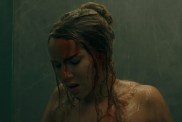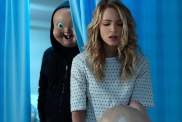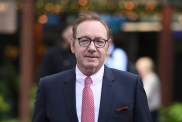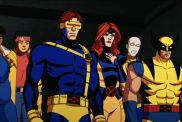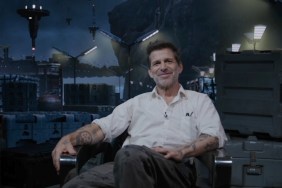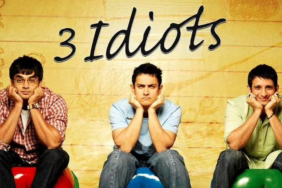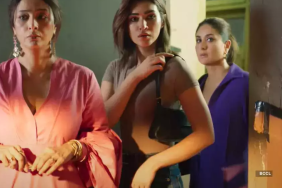
Before posting Lee Daniels’ The Butler I searched and searched and searched for information to find out just how much was true and how much was fictionalized for the sake of the film. I came away with the understanding the largest fictionalization was the invention of a second child, Louis, played by David Oyelowo. This, on top of the fact the name of the actual butler at the center of the story, Eugene Allen, had been changed to Cecil Gaines (Forest Whitaker). Turns out that was just the tip of the iceberg.
Louis is a major character in the film and some could easily argue the actual lead as he becomes one of the Freedom Riders, joins the Black Panther party and even spends some time with Martin Luther King, Jr. It’s through Louis that screenwriter Danny Strong gives the outside world a face for the audience to connect with. I understand this and don’t mind the decision. As much as Cecil presents one side of the African American struggle, Louis is another.
To simply show these events on television or to have the presidents Cecil is serving acknowledge the events as they are reported on television or by his staff would have been to keep them at arm’s length. By putting Louis in the middle of it, Cecil becomes a father with a child putting his life on the line for the sake of the betterment of our country. The real Cecil may not have been in that exact predicament, but there were fathers out there that were.
Now, in a new article at Slate the one question I could not find the answer to before hitting publish on that review concerned Cecil’s father, whom we see shot in the head on a cotton farm at the beginning of the film. Slate‘s Aisha Harris says this event and virtually every nasty bit of prologue “appear to be the inventions of Lee Daniels and Danny Strong.”
I opened my review with the following sentence:
Imagine your time on Earth began as a black man, young enough to see your father shot in the head in a cotton field with no repercussions for the shooter and you ultimately lived long enough to see Barack Obama elected as the first black President of the United States.
Now, just like my argument for the creation of a second son, you could use the same argument here. Certainly African American fathers were shot dead in front of their sons back then and this is simply an example of bringing that reality front and center. But where does the fictionalization end?
On top of this, not only did they create a son, the one son Eugene Allen did have, Charles, actually did go off to fight in the Vietnam war. In the film he dies in said war and the news is brought to Cecil on his birthday of all moments. In real life he comes home safely.
Additionally, Gloria Gaines, Cecil’s wife played by Oprah Winfrey, is presented as a character that struggled with alcohol and even had an affair with the next door neighbor (Terrence Howard). Again, apparently not true.

I’m slightly torn with all of this. On the one hand I see the reason for a lot of the changes and it doesn’t change the fact The Butler deals in realities. The aspects of the film that are hard to watch are made more emotional as a result of our connection to the characters. Isn’t this a filmmaker’s duty?
Is the burning of a Freedom Riders bus any less deplorable now that you know Eugene Allen’s son wasn’t actually on it? Is the tension between the older and younger generation in black families any less true or emotionally conflicting now that you know it didn’t actually happen between these two characters even though it did happen between other, real people?
I can understand people being frustrated when they learn a film blurs the line between fiction and reality by starting things off with the idea what we’re watching is true. We never consider the power of the word “based” when we see the phrase “based on a true story”, which it seems we should actually read as “there is some modicum of truth in this, but don’t for a second think this actually happened exactly as it’s presented here.”
Is The Butler true? Depends on what you’re asking about specifically. Did Cecil Gaines exist? Yes, as Eugene Allen. Did he have a wife and two kids, one of which became an activist and the other died in Vietnam? No, he had a wife and one child, who went to Vietnam and returned home safely, but many others didn’t.
Was his father shot on a cotton farm after which he served the man that murdered his father only to leave once he turned 15? It would seem the answer is no, but he did serve a white family on a cotton farm and he did leave in search of something better, but that doesn’t mean what happened to Cecil in the film isn’t a harsh reality of the time depicted.
The Slate story goes into further detail regarding the truths and fictions of the film. Give it a read and let me know what you think? Does this bother you or can you understand why the changes were made? Does it lessen the film’s impact?
I imagine most audiences will be greatly affected by what they see in this film and grow compassionate about Cecil, Gloria, Louis and Charles and their concern for these characters will give greater weight to what they see on screen. However, will that compassion and concern diminish once they realize these people weren’t real in the sense they may have believed them to be? Does the fact everything seen in the film didn’t happen to these specific people, though it did happen to others, make a difference?
